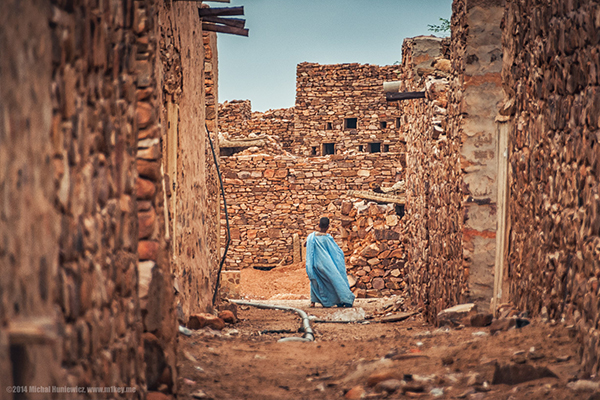Slavery and human rights defenders
Numerous reports and studies demonstrate that slavery is widespread in Mauritania. According to the global slavery index – a country by country index of the number of people living in modern day slavery – Mauritania is ranked 7 out of 167 with 43,000 people estimated to be living in modern slavery.
Commissioner Mute welcomed the government’s roadmap to fight slavery. He cautioned the delegation and explained that the ‘TADAMOUN’ National Agency had a broad mandate. Established in 2013, Tadamoun is the Government’s lead agency in the fight against poverty, slavery as well as design and implement programmes to promote the reintegration of Mauritanian returnees who fled during the ‘passif humanitaire.’ He suggested streamlining the agency’s work to ensure better time allocation on slavery-related matters. The delegation responded that they took note of the suggestion and reminded participants that ‘slavery is neither cultural nor societal but is often caused by poverty. The government assists victims of poverty with electricity, health and food.’
Human rights defenders and activists such as Biram Dah Abeid have been arrested, detained and tortured for campaigning against slavery in Mauritania. Commissioner Alapini-Gansou requested the delegation to look into similar cases and provide in writing the situation of defenders that are detained or jailed for their anti-slavery work.
She reminded the delegation about the report on the situation of Women Human Rights Defenders in Africa. She urged the government to read it and implement its recommendations.
Women’s rights
‘Mauritania is the 7th country to submit its report under the Maputo Protocol,’ noted Commissioner Lucy Asuagbor. She expressed satisfaction about the legislative and administrative measures that have been taken to promote and protect the rights of women. She emphasised that the National Gender Policy adopted in 2015 was a good policy and should be effectively implemented.
‘Despite this legal framework, the government needs to do more to raise awareness of women and children’s rights, especially the rights of women human rights defenders which were omitted from the State periodic report,’ Asuagbor added.
Mauritania, with reservations, acceded to the Convention on the Elimination of All Forms of Discrimination against Women (CEDAW) in 2001. The reservation was that the provisions in CEDAW were accepted as long as they were ‘not contrary to Islamic Sharia and are in accordance with our Constitution.’
‘We have taken note that in July 2014 your government submitted a partial withdrawal from the 2001 reservation’,, stressed Commissioner in charge of Mauritania, Maya Fadel. ‘I encourage you to make the content of this partial withdrawal public’, she added.
Photo: FilckR/Michał Huniewicz




